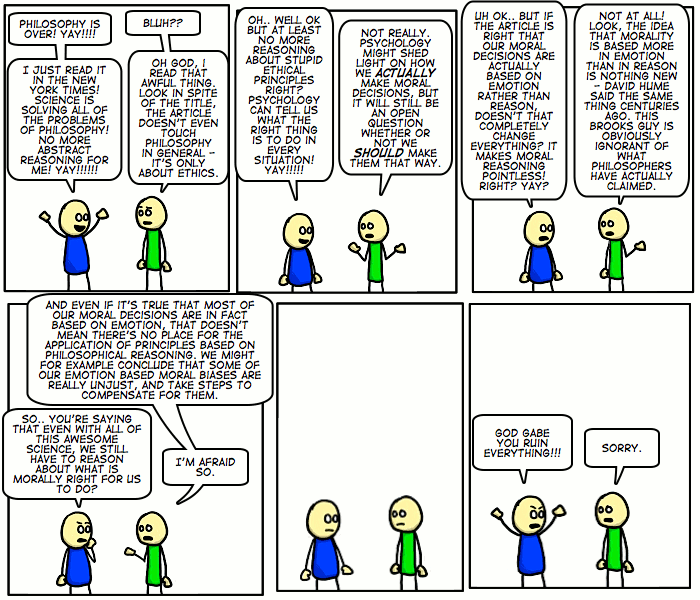Fark off
My Chronicle of Higher Education article was picked up by Arts & Letters Daily and from there picked up by fark.com. Now, I was aware that the quality of comments at Fark could be very low; but I didn't realize it could be THAT low. I've never seen anything like it, despite occasional ill-advised visits to places on the web where the ragged people go. As conversations go, it's like walking past a dog pound. The policy at Fark seems to be bark first, look at the article maybe later. Responding to such stuff is probably a waste of time. (One must never forget the reason why it is a bad idea to wrestle with a pig: you both get filthy, but the pig enjoys it.) So just very briefly, let me supply these short answers:
- To the guy who asked "why is a Scot writing invectives about an American style guide? That's like having a French writer comment on a style guide from French Canada": I've been an American citizen longer than you've been alive, and I have 25 years' experience of teaching about language at the University of California.
- To the various people who assert that I am a disappointed style-guide author plugging a rival text ("the article's author has his own competing book to flog"): I haven't written anything that could plausibly be recommended to a freshman taking English composition. When people ask me for recommendations, I tell them to look at the very sensible and intelligent book Style: Toward Clarity and Grace by Joseph Williams.
- To the guy who said "my penis could type a better article": your girlfriend told me she doesn't think so.
Read the rest of this entry »
Permalink Comments off

